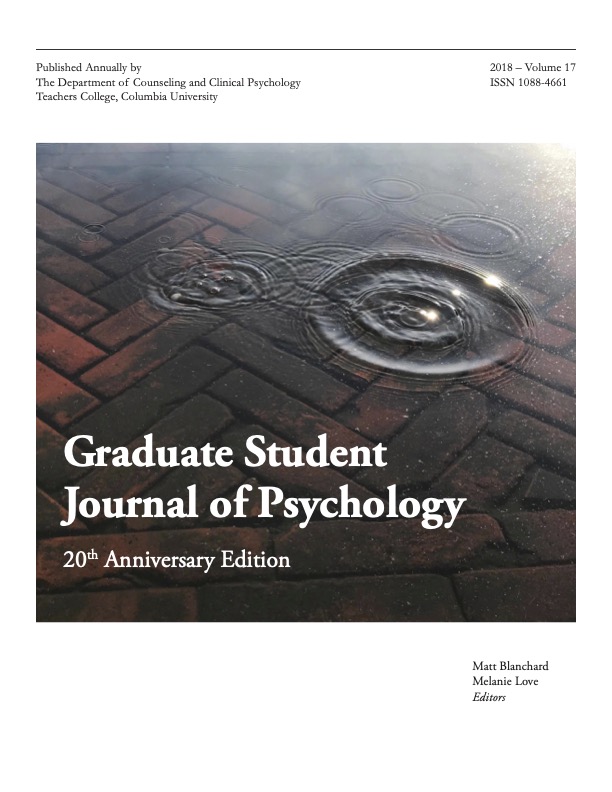Effect of Brain Injury on Post-Deployment Relationship Satisfaction in Veteran Couples
Main Article Content
Abstract
Reintegration of veterans from the Operation Enduring Freedom-Operation Iraqi Freedom (OEF/OIF) era presents numerous challenges for both the veteran and their partner, particularly when the veteran returns with physical and psychological injuries. The proposed study aims to explore the factors that affect relationship satisfaction, including depression, emotion dysregulation, and communication patterns in OEF/OIF veterans with a history of mild traumatic brain injury (mTBI) and their partners. Cross-sectional analyses were conducted to compare measures of these factors between 35 veterans and 35 partners from Greater New York and Baltimore, MD. Initial analyses of variance indicated that veterans were more likely to be more depressed and emotionally dysregulated, and less likely to engage in positive communication compared to partners. Hierarchical regression suggested that veterans were less likely to report relationship satisfaction when accounting for depression, emotion dysregulation, and positive interaction patterns. Partners were less likely to report relationship satisfaction only when accounting for depression. These cross-sectional analyses identify key areas that present challenges to OEF/OIF veterans reentering civilian life with their significant other, which could inform mental health services targeting military couples. Limitations and future directions are discussed.
Article Details
Section
Articles

This work is licensed under a Creative Commons Attribution-NonCommercial 4.0 International License.
How to Cite
Grier, S., & Perlick, D. A. (2018). Effect of Brain Injury on Post-Deployment Relationship Satisfaction in Veteran Couples. Graduate Student Journal of Psychology, 17, 35–44. https://doi.org/10.52214/gsjp.v17i.10918

